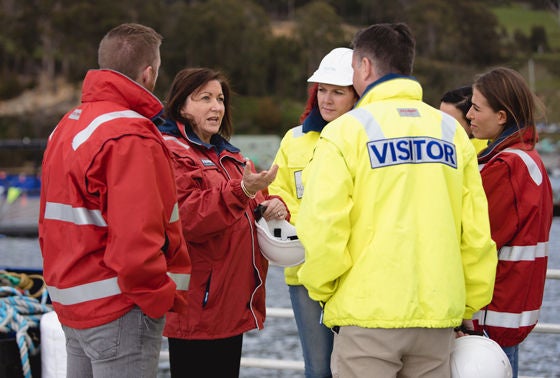Posted by on
12/06/2018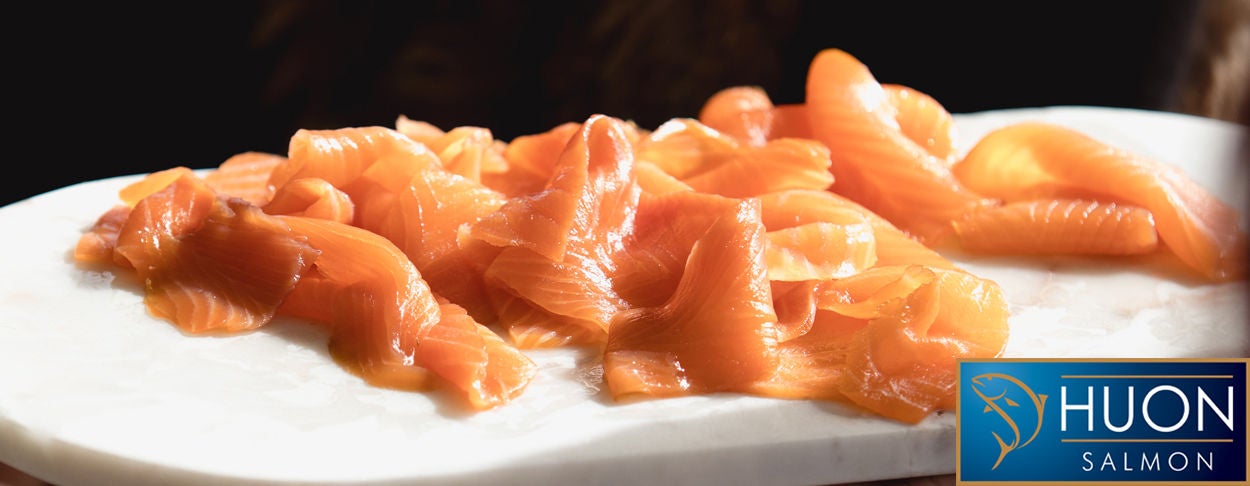
While fresh salmon is now considered a staple in many households throughout Australia it was only thirty years ago that Aussies couldn’t obtain a slice of the delicious fish for love nor money.
Canada, and countries in Scandinavia were already in the throes of a burgeoning salmon farming industry but due to Australia’s strong biosecurity protection laws, their product was not available on our shores. A report from the Tasmanian Fisheries Development Authority released in the mid-80s highlighted the suitability of the Tasmanian coast for a salmon farming industry, this essentially kicked off the industry in Australia.
Frances and Peter Bender of Huon Aquaculture have been involved in the Tasmanian salmon farming industry from the beginning but Frances is the first to admit that its launch was by no means an overnight success.
“At the time, Peter was managing his family’s cattle and sheep farm near the southern coast of Tasmania, salmon farming was in its infancy off the coast of Dover, a small country town near us,” she said.
“My father was a fisherman who had been doing some work there at the time and it looked to be a good option for diversification.
“In 1986, we started the enterprise within the family business structure and applied for a lease, we began with a pen of trout because in the first year there were no salmon available.
“Unfortunately, we had high mortalities in that first year because we basically didn’t have much of an idea what we were doing.”
For the salmon farming industry in Tasmania, this was just the start of the learning curve.
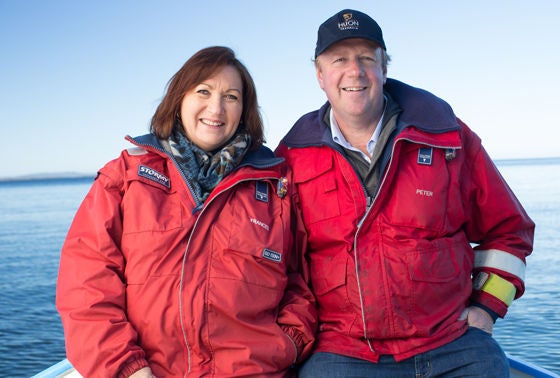
“While the industry was starting from nothing, we were also building a market from scratch,”
“It’s a part of the Australian diet now, but when we started out not only did we have to learn the animal husbandry, how to process them and how to breed them, we also had to invent the markets and educate the Australian consumer on what it was and how to eat it.”
But it wasn’t long before the consumer caught on and Huon Aquaculture began to see some significant growth. “The first year of production for the entire industry was 50 tonnes, and we struggled to sell even that small amount,” Frances said.
“Now Huon Aquaculture harvests more than that six nights a week and we are continuing to see demand grow at 10 per cent a year.”
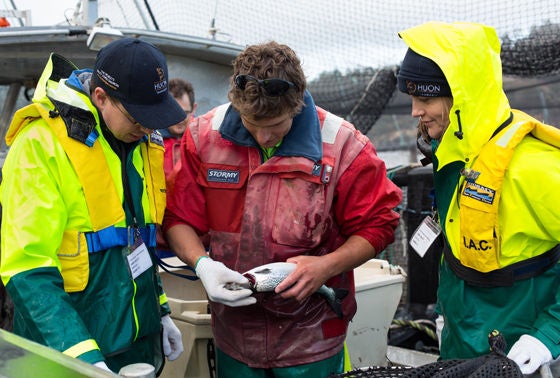
By 1994, Peter and Frances had bought Huon Aquaculture off the larger family livestock operation and were now solely focused on salmon farming.
It was a significant leap of faith at the time for the couple and their three young children but plenty of reward has come with the risk.
Huon Aquaculture is now one of the largest seafood producers in the nation, with an annual turnover exceeding $230 million.
They also employ 550 people, predominately in Tasmania, a fact that Frances is incredibly proud of.
“Our industry has managed to employ people in regional areas of Tasmania where employment is difficult,” Frances said. “It’s also a highly skilled workforce, we have more than 6000 separate qualifications across our 550 employees.
“It’s actually a fact at Huon that Peter and I are the least qualified in the whole business!”
“We have veterinary scientists, marine biologists, divers, specialist boat builders, marketing and communications people, a whole gaggle of accountants and numerous other skilled professionals.
Frances says they are continuing to see a positive flow on effect from the solid employment growth in their local areas.
“I’ve seen the local community change and grow alongside the business, and while contributing to the community is important for us, it is equally important that we continue to be an ethical and interactive member of that community.
“The communities in which Huon Aquaculture operates are our key stakeholders, the only way for our business to continue to grow will be with the community’s support and we fully expect them to hold us accountable, particularly from an environmental standpoint.”
Almost five years ago Huon Aquaculture reached a pivotal point in their business where they needed to expand rapidly to keep up with future consumer demand.
Peter travelled to Norway, the leaders in offshore salmon farming innovation, and returned with his manifesto ‘The Future of Fishfarming’ recommending changes to almost all their farm practices.
“We realised at this point that in order for us to continue to produce the highest quality product in an ethical and sustainable way, we had to move offshore into high energy spots,” Frances said.
“The only way to do that was to change all of our equipment and technology, these changes were going to require a huge investment in capital so we made the decision to partially float the business.”
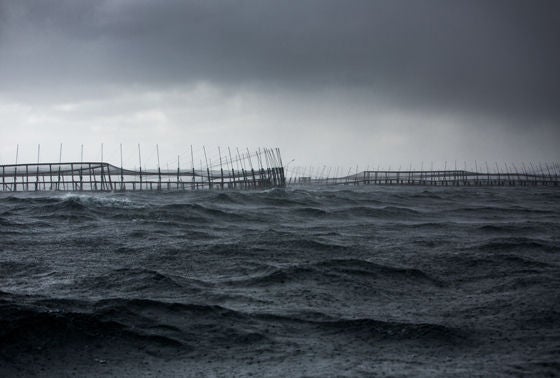
Huon Aquaculture (HUO) was listed on the ASX at the end of 2014 with Frances and Peter retaining majority ownership, over the following two-year period the company engaged in a complete overhaul of their facilities.
Some of the initiatives financed by this capital raising included: development of broodstock facilities, expansion of hatchery facilities, the ongoing roll-out of Huon’s world-leading fortress pens, expansion and improvement of marine farms, the provision of more state-of-the-art feed barges, the deployment of a new well-boat, and a new expanded Smokehouse and Product Innovation Centre.
Working alongside Huon Aquaculture to ensure delivery of this program was financial partner Rabobank.
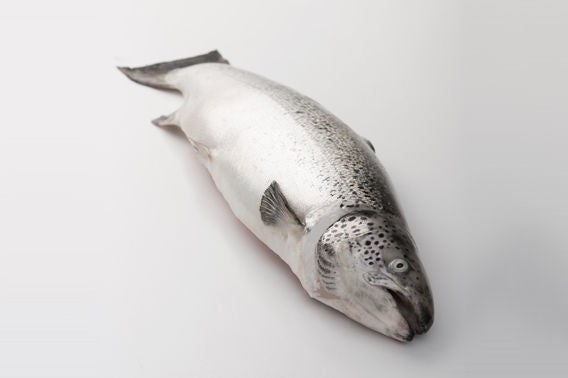
“We’ve been banking with Rabobank since 2005 and joined after being frustrated at the time that other banks didn’t seem to have an understanding of agribusiness,” Frances said.
“While we have quite a complex business that covers the entirety of the supply chain we still see it as farming, farming on steroids."
“It’s a bit hard for the traditional banking model to get a hang of what we do, but Rabo have a long history of financing salmon farming in other parts of the world and we knew they would understand the risk.
“It’s been a relief to no longer have to continuously educate bank managers about our industry, Rabobank understand all the triggers in our business that are important, they understand its cyclical nature and have been a stable platform for us to continue to build our business on.”
The partnership continues to be an important one as the three-year growth cycle of salmon means Huon must be constantly future proofing its business and gearing for growth. The company also continues to explore other opportunities including an offshore kingfish farm near Port Stephens in New South Wales.
While Huon Aquaculture has gone through an evolution over the past three years and dramatically increased its production capacity Frances says it has not changed the culture and ambitions at its core.
“We are a Tasmanian family business that aims to keep producing the very best products we can for the consumers of Australia.”
“Since going public it has become increasingly important that we maintain the ethos of who we are,” Frances said. “Whether we are interacting with a shareholder, consumer, community member or a large supermarket we want to engage with them so they understand what we’re all about.
